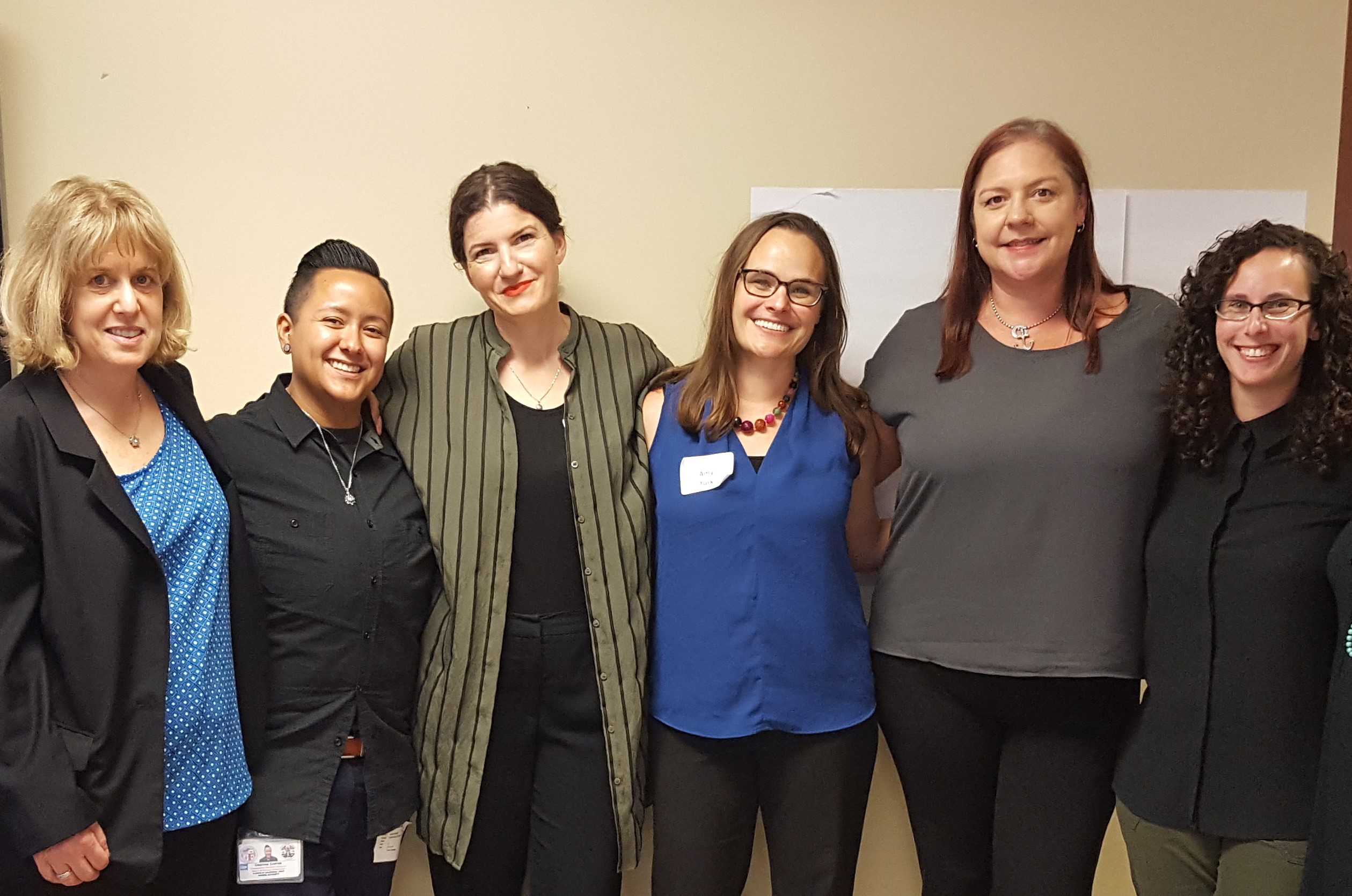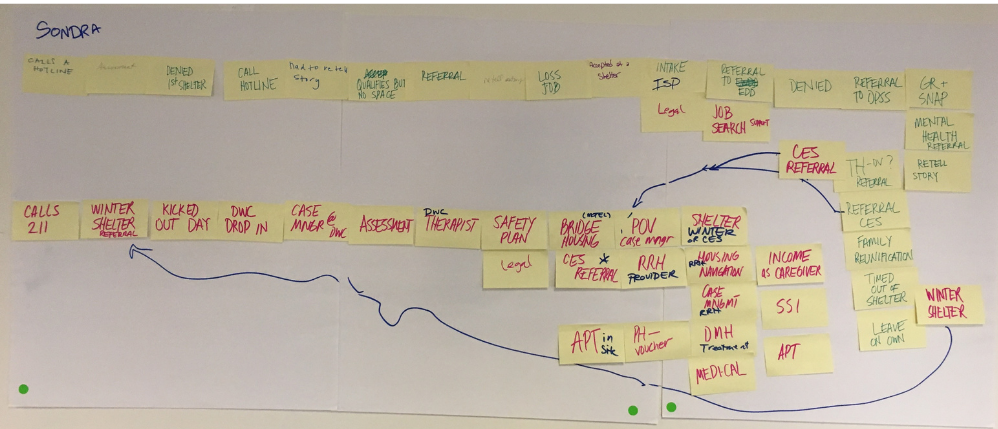The Landscape
Before the DVHSC, the domestic violence and homeless service systems network in Los Angeles operated independently. Survivors who were experienced homeless reported feeling as if they were pushed between systems: while domestic violence agencies told them to seek homeless services because they were not in immediate danger from their abuser, many housing service providers would refer them back to domestic violence agencies due to potential safety issues. The result was that many survivors fell through the cracks, unable to receive services from either field.

Although both systems occasionally collaborated when working with individual clients, regional efforts to address the intersection of domestic violence and homelessness are relatively recent. Renewed focus on the issue in Los Angeles throughout the mid-2010's led the County Board of Supervisors to introduce a motion in early 2016 directing local officials to identify strategies (1) to address the unique needs of women and survivors of domestic violence, and (2) to strengthen collaboration between regional domestic violence services and homeless service agencies. Several key agency representatives within that workgroup would go on to become core members of the DVHSC.
Bridging the Gap
In fall 2016, with funding from the Conrad N. Hilton Foundation, the Downtown Women’s Center and Rainbow Services launched the Domestic Violence & Homeless Services Coalition (DVHSC) alongside representatives from the City Attorney’s Office, the Los Angeles Homeless Services Authority, and the Office of Los Angeles County Supervisor Sheila Kuehl. One of the new coalition's first priorities was to bring together regional homeless service and domestic violence service providers to discuss the County Board's findings regarding survivors' experiences when seeking services. The results overwhelming indicated that the process of acquiring permanent housing for a person experiencing domestic violence and homelessness was arduous, lengthy, and riddled with requirements and barriers to access.
From there, separate workgroups within the DVHSC were created to focus on different issue areas: (1) a client-centered workgroup to ensure the needs of survivors remained at the forefront of the Coalition's work; (2) a training and education workgroup to prioritize the development of tools, resources, and trainings that would facilitate cross-sector knowledge sharing, understanding, and collaboration; and (3) a systems and funding workgroup to focus on policy, advocacy, partnerships, and community engagement.
DVHSC Today
Since 2016, the Coalition has grown to include over 800 individuals representing 244 community-based organizations, government officials, philanthropic circles, and individuals with lived experience of homelessness and domestic violence. We have become the largest coalition of our kind across the nation, undergoing formal evaluation with our partners at the Safe Housing Alliance.
Impact:
- Focused on how to transform the Coordinated Entry System to make it easier for both fields to communicate, while maintaining client confidentiality.
- Helped policymakers reconsider the requirements for funding and access to housing, to better support the needs of survivors who have experienced homelessness.
- Increased transparency regarding in domestic violence and homeless service provision to uplift the use of evidence-based best practices across both fields, including the promotion of Trauma-Informed Care and Housing First models.
- Identified and assessed the training needs and gaps within and between domestic violence and homeless systems in Los Angeles, and increased the training capacity of the Los Angeles Homeless Services Authority (LAHSA) Centralized Training Academy.
- Determined the role and scope of new domestic violence regional coordination efforts through LAHSA.
- Provided technical assistance to multiple communities within California, including: Alameda County, Fresno, Orange County, and San Francisco; and across the nation, including: Washington D.C., New York City, and Indianapolis, IN; to assist them in their leadership and policy change efforts in bringing together homeless and domestic violence organizations.
Some of our highlights include:

In 2017, the DVHSC client-centered workgroup conducted a series of countywide focus groups to better understand the needs survivors who had experience homelessness. Click here to review the resulting report and recommendations.

In response to the results of the 2017 survivor focus groups, the DVHSC Advocates Program was formed in 2019 to develop women with lived experience as leaders in the Coalition. Click here to learn more about this exciting program!

In October 2017, DVHSC held the first-ever symposium on domestic violence and homelessness in Los Angeles. Over 200 people attended, including Mayor Eric Garcetti, County Supervisor Sheila Kuehl, City Attorney Mike Feurer, and more!

Held in DTLA, the 2019 DVHSC Community Connections Summit featured a lived experience panel and practical workshops to advance racial and gender equity, trauma-informed care, systems change, and best practice. Click here for the full details!
